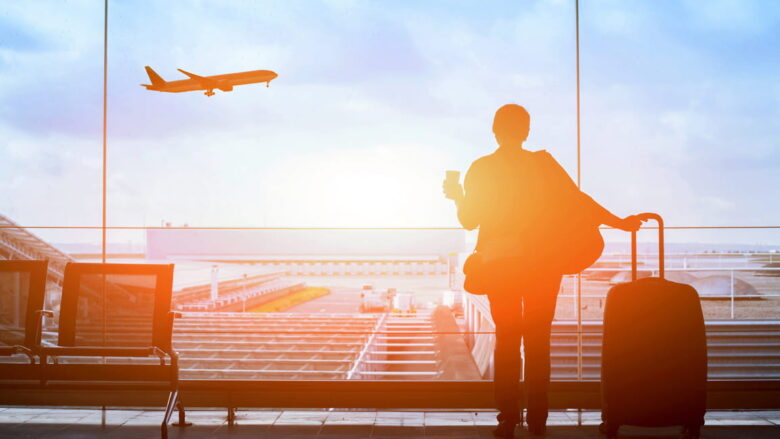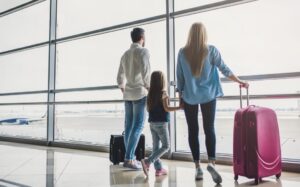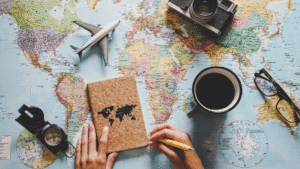Traveling opens the door to new cultures and experiences. It also creates memories that will last a lifetime. Language barriers can turn simple interactions into frustrating ones. You can make your trip less stressful by learning a few key phrases. This will help you communicate with the locals and be able to navigate daily situations confidently.
It is not necessary to be fluent to have a positive impact on your trip. Even simple phrases can show respect for local culture and lead to more friendly interactions with the residents. Locals may be more helpful or smile and show their appreciation. When technology fails or you find yourself in an area with few English speakers, knowing essential phrases will come in handy.
Basic Courtesies and Salutations
You’ll be using these fundamentals every day. The basis of polite communication is “hello,” “please,” “thank you,” and “excuse.” These simple words are a wonderful way to start a conversation, show respect, and navigate crowds gracefully.
Your courtesy toolkit is complete when you know how to say, “I’m sorry” and “you are welcome.” Basic responses such as “yes” or “no” are crucial, especially when asked if you require help or directions. Before you travel, practice your pronunciation. Poor pronunciation can cause confusion. However, most people will still appreciate the effort.
The Essentials Questions
Use key question phrases to ask for what you want. “Where is…?” “Where is…?” becomes your navigation partner, whether you are looking for the nearest bathroom, train station, or restaurant. How much is this? These questions will protect you from being overcharged and help you to budget effectively.
Can you please help me? “Do you speak English?” This approach creates opportunities for assistance from individuals unfamiliar with the language. Asking, “What time is it open/closed?” Avoid disappointments by not visiting closed restaurants or attractions. These questions will help you gather independent information and resolve common travel problems.
Directions and Transportation
It is much easier to get around if you are able to communicate with other travelers, taxi drivers, and bus operators. You can learn phrases such as “How do you get to …?” “Tell me where…” “is located,” and “How do I get there?” for guidance on public transportation.
To understand responses, you need to know the basic distance indicators and directional words. Stop here, please,” for taxis. “Is this bus the one for …?” Public transport can help you avoid costly mistakes. Do not forget to ask, “How long will it take?” Please plan your schedule efficiently. These phrases will help you avoid getting lost and costly detours.
Accommodation and Food
With the right phrases, hotel and restaurant interactions are smoother. Check-ins are easier with “I have a booking” and your name. “Can I view the room?” is a good phrase for checking in. Avoid unpleasant surprises. What do you recommend for dining? You may discover delicious local specialties that you would otherwise have missed.
It is important to be able to clearly state any dietary restrictions and allergies. This could have a significant impact on your comfort and health. Please, the bill and “Is there service included?” Budgeting and restaurant etiquette are made easier with these phrases. With these phrases, you can enjoy the local cuisine and secure comfortable accommodation without any confusion.
Emergency Phrases
Use these phrases to prepare for any unexpected situation. “Help!” The fundamental emergency communications are “Help!” These are the most basic emergency communications. The words “I need a physician” and “Where’s the hospital?” are essential emergency communications. It could be crucial if you have a health issue during your travels.
You can also use “I’m lost,” “Can you call me?” and “Can I call you?” Use these phrases in less urgent yet crucial situations. You can report theft by saying, “My wallet/passport was stolen.” Although you hope to never need these phrases in a crisis, knowing them beforehand can provide peace of mind.
Enjoy Every Trip with Memorable Experiences
By learning essential phrases, you can transform yourself from a tourist to a confident traveler. These linguistic tools can open the door to meaningful connections and authentic experiences that guidebooks cannot provide. Consider downloading offline translation applications as a backup and start practicing these phrases weeks in advance.
Remember that gestures, smiles, and patience can often bridge language gaps. Don’t be afraid to make mistakes and embrace the learning process. Locals will usually help travelers who are trying to learn their language.
FAQs
1. How many phrases do I need to know before I travel?
Focus on 20 essential phrases that cover greetings, basic questions, and emergency situations. It’s more important to learn fewer words well than many.
2. Should you learn grammar or phonetic phrases?
Phonetic learning is perfect for short trips. You can also practice your pronunciation by writing down the words and phrases. Understanding grammar is helpful for staying longer but not necessary for basic communication.
3. How can I pronounce words correctly?
Do not worry about your pronunciation. Locals will appreciate your efforts to speak the language. You can also communicate by pointing to phrases written on paper or your phone.
4. Can you trust translation apps for travel?
Translator apps can be helpful, but they may not work in areas without an internet connection. You can still communicate when you learn key phrases.




